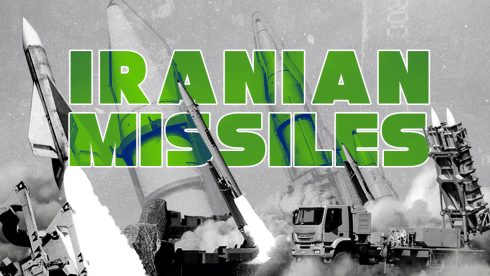Iran on June 23 launched a barrage of ballistic missiles at Al Udeid Air Base in Qatar, in response to the United States’ recent attacks on its nuclear sites.
Located southwest of the Qatari capital, Doha, Al Udeid is considered one of the U.S. largest bases in the Middle East. It hosts a forward headquarters of U.S. Central Command, headquarters of the U.S. Air Forces Central Command.
The air base was completely evacuated days before the U.S. attacked the Fordow, Natanz and Isfahan nuclear sites in Iran on June 22.
Right before the attack, Qatar closed its airspace, which suggests that it had some advanced knowledge. Similar measures were reported later on in Iraq, Bahrain, Kuwait and the United Arab Emirates, which also host key bases of the U.S.
In a statement, the Islamic Revolutionary Guard Corps said that it had launched in cooperation with the Iranian military a “powerful and destructive missile attack” on Al Udeid in response to the recent American attack.
“The Islamic Republic of Iran, relying on Almighty God and the faithful, proud people of Iran, will never leave any aggression against its territorial integrity, sovereignty, or national security unanswered,” the statement reads.
Videos from Qatar showed multiple interceptions over Doha, with reports suggesting as many as ten missiles were launched at Al Udeid during the attack.
Majed al-Ansari, a spokesman for the Qatari Foreign Minister, said that no one was injured in the Iranian attack on Al Udeid.
The spokesman confirmed that the air base was evacuated ahead of time, adding that the Iranian missiles were intercepted by Qatari air defenses. He also warned against continued escalation in the Middle East, urging diplomacy to end the ongoing conflict.
Later, The New York Times reported that Iran had coordinated its attack on the air base with Qatari officials. Tehran “gave advanced notice that attacks were coming to minimize casualties,” the newspaper said, citing three Iranian officials with knowledge of the plans.
Iran desired to symbolically retaliate for the U.S. attack on its nuclear sites, but also sought to ensure that both sides could easily deescalate, similar to a 2020 case when Iran notified Iraq before firing missiles at an American base in Iraq in response to the assassination of top Iranian general Qasem Soleimani, the officials say in the report.
While the U.S. warned Iran against responding to its attack a day earlier, Washington could opt to tolerate the barrage launched by the Islamic Republic at Al Udeid if there are indeed no losses. This could also open the door for de-escalation between Iran and Israel.
_______________________________________________________________________________________________________________________
SouthFront: Analysis and Intelligence
NOW hosted at southfront.press
Previously, SouthFront: Analysis and Intelligence was at southfront.org.
The .org domain name had been blocked by the US (NATO) (https://southfront.press/southfront-org-blocked-by-u-s-controlled-global-internet-supervisor/) globally, outlawed and without any explanation
Back before that, from 2013 to 2015, SouthFront: Analysis and Intelligence was at southfront.com






